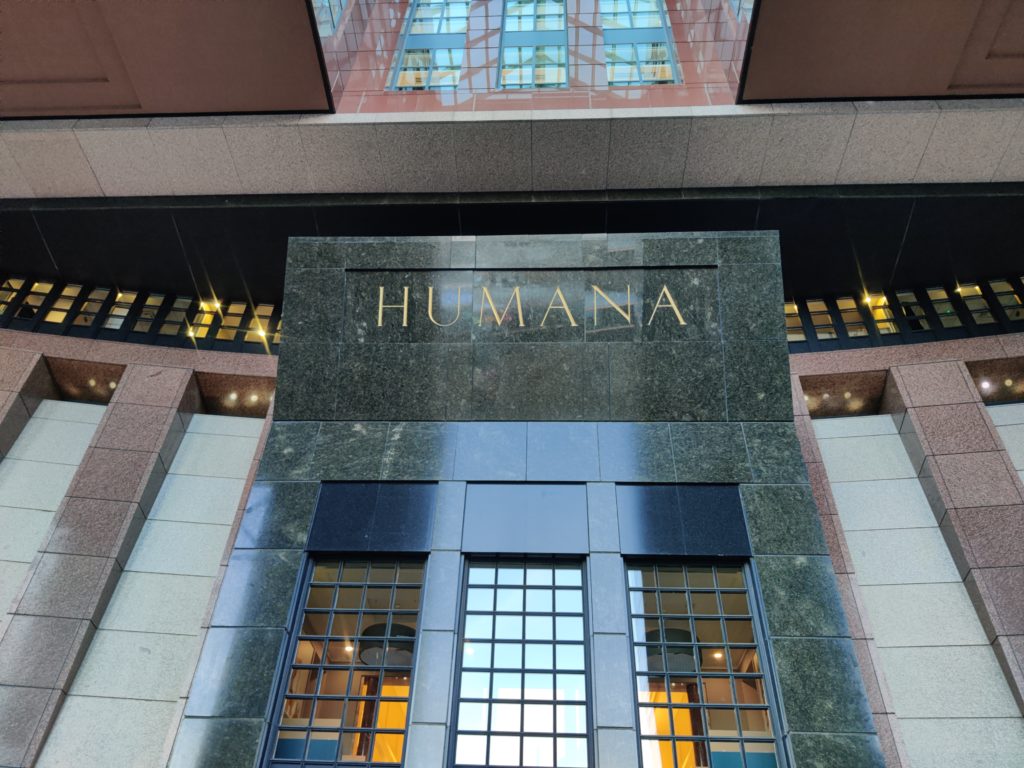Humana Inc. (NYSE: HUM) expects revenue to fall by $400 million immediately following its divestiture of the Kindred at Home hospice segment, but anticipates this to be offset by lower operating costs and, in time, the proceeds of the sale.
The company signed a definitive agreement in April to sell a 60% stake in Kindred to the private equity firm Clayton, Dubilier & Rice (CDR). Humana will retain the remaining 40%. The sale is anticipated to complete in the third quarter of this year, with impacts to Humana’s overall bottom line, executives said in a second quarter earnings call.
Some of the lost revenue also will be partially offset by growth in the company’s other health care offerings, such as pharmaceutical services, according to Diamond.
Despite the initial loss, the sale holds promise for next year’s margins in terms of lowering debts and reducing operating costs, according to Humana CFO Susan Diamond.
“Of the known headwinds, the anticipated hospice divestiture has always been contemplated in our thinking of 2023,” said Diamond during an earnings call. “The hospice business carries a higher operating cost ratio than the company’s consolidated operating cost ratio. From a capital deployment perspective, we expect our debt-to-capitalization ratio to be in the low 40s at the end of the year as we utilize proceeds from the Kindred hospice divestiture to deleverage.”
The sale will reduces operating cost ratios — the amount Humana spends to generate income — by an estimated 13% – 13.5%, said Diamond. Previous estimates put this number between 13.2% – 14.2%.
Kindred at Home’s hospice business was more expansive to run compared to the company’s other business lines, Humana stated in its Q2 earnings report. Hospice operations added roughly 220 basis points to 2022’s second quarter operating costs, and 210 basis points to its overall operating costs for the year thus far.
Humana indicated that it would receive a cash payment of around $2.8 billion upon the Kindred hospice deal’s closing. The bulk of those funds will go towards paying down debt.
Enterprise-wide, Humana saw Q2 revenues dip to $22.2 billion compared to $23.9 billion in Q1. The health care services segment contributed $8.9 billion, a rise from $7.5 billion in the prior year’s period. The segment includes provider, pharmaceutical and home services, among others.
Humana’s Q2 performance across its health care service lines was primarily driven primarily by lower than anticipated medical cost trends and its Medicare Advantage businesses, according to Diamond.
Humana is among the largest payers participating in the U.S. Centers for Medicare and Medicaid Services (CMS) Value-Based Insurance Design (VBID) demonstration. Also known as the Medicare hospice carve-in, the demonstration tests coverage of these services through Medicare Advantage. Humana operates more participating health plans than any other payer.
Humana President and CEO Bruce Broussard announced in the earnings call that the company is in the works of realigning through a division into two segments. One segment will include its insurance service offerings. The other will consist of its health services, including those under its CenterWell brand. Following its 100% acquisition of Kindred, Humana began transitioning home health services this year under the CenterWell umbrella.
Broussard referred to the segmentation as a “flywheel” that generates opportunity in both value-based payment and service offerings.
“The ability for us to integrate and also to expand beyond the Medicare side of the business is really at the heart of what you see us more formally creating with the CenterWell’s service side,” said Broussard during the earnings call. “While on the insurance side, [we’re] continuing to leverage the efficiencies across the various different insurance platforms. [With] the segmentation, we are seeing some really great opportunity to create some simplification and the ability to leverage a number of our different areas within the insurance areas.”
CenterWell encompasses Humana’s home health, pharmacy and specialty pharmacy services. CenterWell also includes primary care senior services as a result of its joint venture partnership with private equity firm Welsh, Carson, Anderson & Stowe (WCAS).
A second JV partnership recently formed between Humana’s CenterWell and WCAS aimed at expanding access to value-based care among Medicare patients. Through the second JV, Humana anticipates deploying up to $1.2 billion to develop roughly 100 de novo senior primary care clinics during the next two years.
“There’s a lot of work now going into really consolidating service centers into one service center and the ability to use our clinical programs not only in the Medicare side, but also in our commercial book of business in a much more integrated way,” Broussard continued. “We see in our work in local markets being able to integrate our various different health care services.”
The segmentation is the latest strategic move in Humana’s goal to raise its enterprise value by $1 billion.
Humana is “well-positioned” to achieve its $1 billion value creation goal, according to Diamond. The initiative allows the company to further invest in its Medicare Advantage offerings for 2023 along with expansion of its health care services capabilities and long-term growth potential, she continued.
For now, Humana will continue to look at building more partnerships with providers that are “apt to wanting to move to value-based care,” according to Broussard. A provider’s quality scores will be top of mind in value-based contracting considerations, he continued.
“If they’re not really performing both in the stars risk adjustment in addition to health outcomes, then it’s really for naught,” said Broussard.
Companies featured in this article:
CenterWell, Clayton Dubilier & Rice, Humana, Kindred at Home, Welsh Carson Anderson & Stowe



